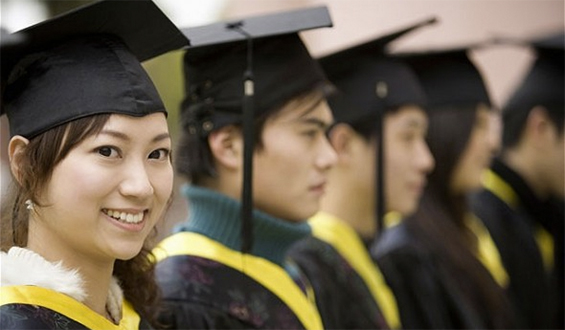
China’s Ministry of Foreign Affairs and the UN have published a report on the country’s implementation of the United Nations Millennium Development Goals in the last twenty years, which shows that China has reached their goals ahead of schedule. The UN Women Executive Director Phumzile Mlambo-Ngcuka said that China has made strides in the empowerment of women by providing them with education and healthcare.
The report revealed that gender equality has been reached in primary and secondary school, and the difference in the number of years of education received by boys and girls has narrowed significantly, according to China Daily. Boys received an average of 1.3 more years of education than girls in 2000, but only .8 years more in 2014.
21 million women are working in science and technology fields, making up 40% of the workforce in those areas. Women of ethnic minorities, disabled women, and those in impoverished areas now have improved access to education as well, including rural boarding schools.
More women have also received skills training, according to Xinhuanet. In 2014, 48.1% of teachers in higher education institutions were female, an increase of 18.1% since 1995.
Policies that China has enacted to facilitate this growth include helping women to retire at the same age as their male counterparts, improving social security like medical and unemployment aid, adding gender equality education to classrooms, and encouraging men to participate in housework, writes Eileen Cheng of Women of China.
Mlambo-Ngcuka said:
This is an opportunity to put the issue of women and girls on the top of the agenda of world leaders, and to keep it there until the time we have corrected with the leaders, with women’s organizations, with civil society, with men and boys as well.
This year is the 20th anniversary of the Fourth World Conference on Women in Beijing, where the Beijing Declaration and the Platform for Action was adopted as a plan for gender equality and the empowerment of women.
Mlambo-Ngcuka said:
The last 20 years did see progress. In the area of legislation, many countries passed legislation that affirms gender equality; in the area of education, especially primary education, access and enrollment (of) girls increased phenomenally.
Outside of China, developing nations have almost achieved gender equality in primary education. 50% of the world’s women are employed now compared to 40% in 1990.
However, violence, poverty, lack of education, and low rates of representation are still particular problems for women worldwide. The gender disparity in secondary and tertiary level education widens, and women still earn 10-30% less than their male counterparts for the same work.
Mlambo-Ngcuka said that there’s more work to be done:
Many women cannot go to work because of unpaid care work, like looking after children. In that way (affordable child care facilities) would create changes that last because women always have somewhere to take the children to.




